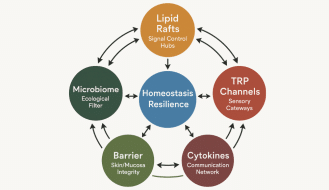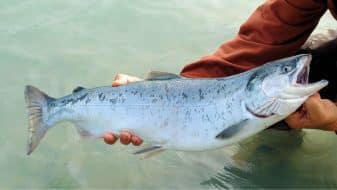Are Fish Oil, Salmon Oil, Cod Liver Oil & Krill Oil the Same?
Today, the omega-3 industry is specializing more than ever. On the supermarket shelf, you don’t just find fish oil supplements any longer, but a broad range of products under that main heading, including cod liver, salmon, and even krill oil supplements.
While all of these sources contain eicosapentaenoic acid (EPA) and docosahexaenoic acid (DHA) omega-3 fatty acids, the composition and nutritional profiles of the oils can be quite different. So how do you know which one is best for you?
Below, we’ll walk you through the finer points of omega-3 supplements, from how they are made to the doses necessary to deliver optimal health benefits.
Where Does Omega-3 Fish Oil Come From?
The majority of the world’s fish oil is a byproduct of the animal feed industry [1]. Fatty fish such as anchovy, herring, sardines, and mackerel are typically fished off the coast of South America or North Africa.
While the fish meat gets ground into fishmeal (a popular source of feed for farmed fish and animals), the oil is multi-purposed. The majority goes towards fish feed and pet food fortification. The rest is refined and encapsulated for human consumption in the form of dietary supplements.
As the Norwegian newspaper Aftenposten reported, there’s often no quality control differentiation between the fish oil destined for people and animals prior to refining [2].
This origin story explains why regular fish oils often taste and smell bad and often produce ‘fish oil burps’. Since the main goal is to produce fishmeal, the manufacturers have less interest in maintaining the quality of the fish oil. The oil is usually extracted last and often goes rancid within a short period of time.
New techniques enable manufacturers to make the oil taste less offensive. However, a rancid fish oil can never be fully restored back to freshness.
“But My Omega-3 Supplement Says It’s From Norway!”
The vast majority of the world’s fish oil is sourced from South America and North Africa, that’s true. But if that oil is later transported to Norway for refinement, it’s often branded as “Norwegian”, regardless of its origin.
To learn more about the source of the oil in your omega-3 supplement, ask your manufacturer about where the fish were harvested.
Fish oils branded as Norwegian or Icelandic are often only refined there.
How Much Omega-3 Should I Take Per Day?
Fish oils derived from a blend of sardines, anchovies and other small oily fish naturally have the highest content of omega-3 fatty acids – up to 30% combined EPA/DHA [3]. On the other hand, half of the fats are saturated, which is roughly double of what is found in salmon or cod liver oil.
If the fish oil has not been concentrated, it typically takes between 8 to 10 large capsules daily to get the 3000 mg of EPA/DHA omega-3s recommended for anti-inflammatory benefits. For more information about calculating the correct omega-3 dose, read this blog.
FISH OIL PROS |
FISH OIL CONS |
|---|---|
|
Contains the highest percentage of EPA/DHA. |
Byproduct of the animal feed industry. |
| – |
Typically rancid. |
| – |
Half of the fats are saturated. |
What’s the Difference Between Fish Oil and Salmon Oil?
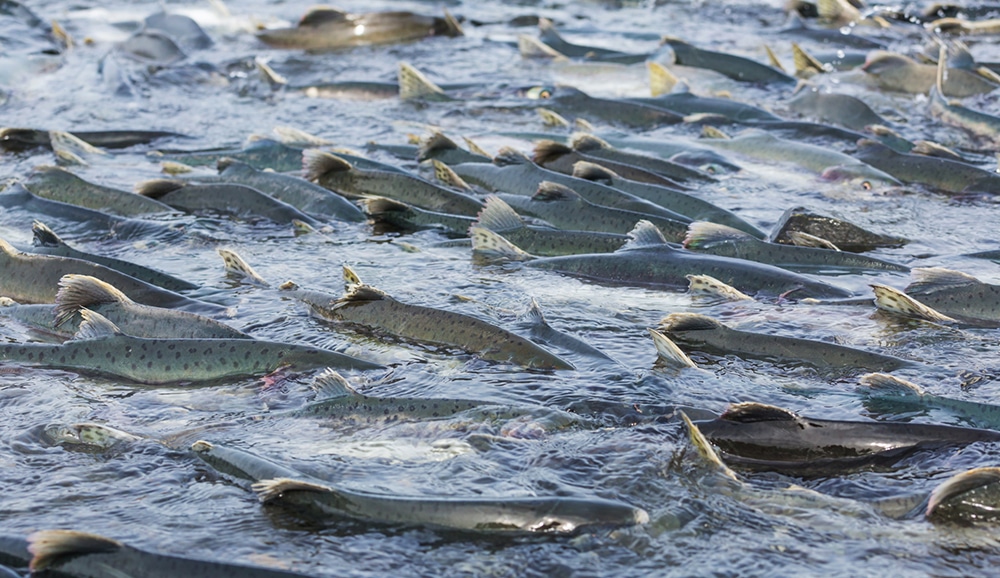
Salmon oil is becoming a more popular omega-3 source today, in large part because it sounds good. You visualize a beautiful salmon fillet, and imagine you are getting the same quality you would if you ate wild caught fish.
Salmon is an expensive fish, so it’s not the fillet that’s turned into oil, but the head, intestines, and fins. While these are perfectly fine parts to consume, the reality is quite different than the image of a fish fillet being reduced to a few fish oil capsules.
Many salmon oils also come from sea-farmed salmon, which is different nutrition-wise from wild-caught fish.
Is Sea-Farmed Salmon Better than Wild Salmon?
Sea-farmed salmon usually contains more pro-inflammatory omega-6s [4] and saturated fats than wild salmon [5]. Depending on the type of salmon and the feed it received, the EPA/DHA content is relatively low, typically ranging from 8 – 16%. To get a clinical dose of 3000 mg EPA/DHA, you would need to consume around 20 capsules per day. The high cost of salmon oil is also a major drawback, especially when compared to regular fish oil capsules.
On the plus side, sea-farmed salmon oil is often fresher than the wild version. That’s because the time it takes to harvest the fish and process the oil is shorter.
If you happen to find a wild salmon supplement, the fatty acid balance will resemble cod liver oil – but still contains less omega-3. That said, wild salmon oil is prone to rancidity issues because of the long transportation time and because the fish is often stained with blood (which accelerates the oxidation process).
SALMON OIL PROS |
SALMON OIL CONS |
|---|---|
|
Often fresh because of short time from harvest to processing. |
Often made from sea farmed salmon, potentially impacting nutritional value. |
|
Less saturated fats than regular fish oils. |
Low omega-3 levels compared to other sources. |
|
– |
More expensive per EPA/DHA dose. |
Fish Oil vs. Cod Liver Oil
Cod liver oil is the original omega-3 source. Already in the 1700s, doctors were recommending cod liver oil for patients with joint pains, although its rich history dates back even further [6]. Considered a safe food product, cod liver oil is especially recommended for children and pregnant women in countries like Norway [7].
Part of the reason cod liver oil has been used for so many years is that the oil is easy to extract. The cod liver contains its omega-3-rich oil in small vacuoles. When the oil is extracted, there is a limited amount of rancidity-creating blood present. However, since cod liver oil was historically left in open vats and exposed to heat and oxygen, the poor taste became notorious and limited its popularity, despite the health benefits.
With modern technology and increased focus on freshness, cod liver oil has come a long way. For instance, Omega Cure® Extra Strength has little taste or smell, and can even be used to make Omega Cookie® and Omega Passion® chocolates.
Not All Cod Liver Oils Are Made Equal
While Omega Cure is a fresh, full-spectrum cod liver oil, store-bought cod liver oils are typically highly refined and often rancid. To learn more about how to find a fresh omega-3 product, read Making Sense of Fish Oil Oxidation Values.
Nutritional Benefits of Cod Liver Oil
Compared to other omega-3 sources, raw cod liver oil contains significant amounts of vitamin A and D. However, the vitamin A and D levels in modern cod liver oils is typically significantly reduced due to the necessary purification of the oil.*
As for the omega-3s, it typically contains around 20% EPA/DHA, and has only half the amount of saturated fats of regular fish oils. To get a clinical dose of 3000 mg EPA/DHA, you would need to consume one tablespoon of oil or 15 capsules.
COD LIVER OIL PROS |
COD LIVER OIL CONS |
|---|---|
|
Long history of medicinal use & safety. |
If not manufactured correctly, vitamin A content may exceed dietary recommendations. |
|
Less saturated fats than regular fish oils. |
– |
|
Often comes in liquid form, making it easier to get an effective dose. |
– |
Krill Oil vs. Fish Oil

Krill oil is one of the newest types of omega-3 sources. While fish oil has been studied extensively by independent universities and research institutes for the last 50 years, researchers did not start collecting data on the benefits of krill oil supplements until the 2000s. What’s more, many of the studies were released by the krill oil manufacturers themselves, raising questions about bias.
What Is Krill Oil?
Krill are small, shrimp-like creatures that are a favorite food of whales, dolphins, and penguins. Like most fish oils on the market, krill oil is a byproduct from the animal feed industry, where the main goal is to produce feed for farmed fish and animals. Krill is also a type of crustacean, and even the smallest amount can cause severe allergic reactions in people with shellfish allergies.
Compared to the previously-mentioned fish oil sources, krill oil is harder to extract. Manufacturers typically use solvents to extract the oil. In some cases, the use of these chemicals can have consequences. In 2012, for instance, chemicals caused a deadly explosion at one krill oil facility [8].
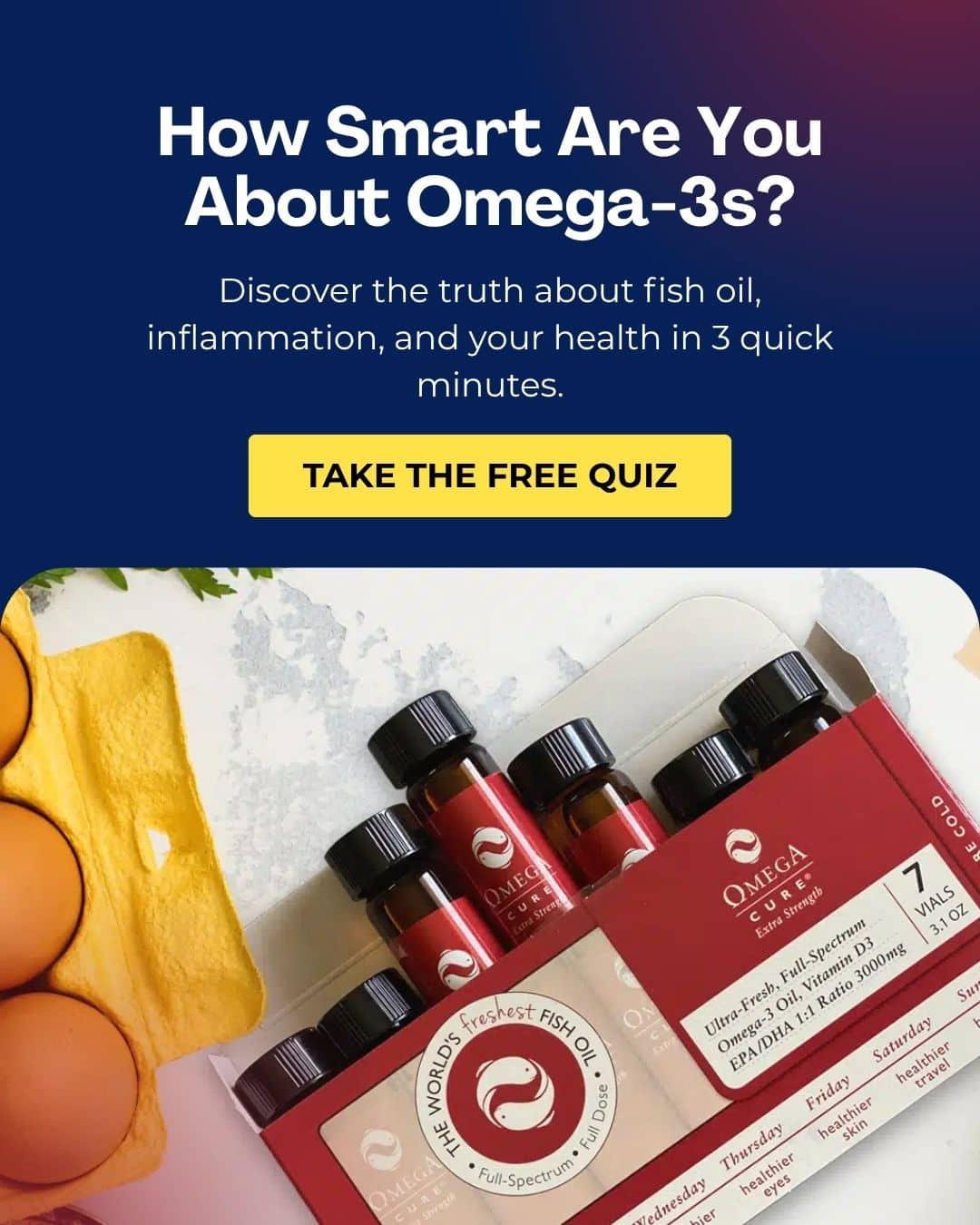
Does Krill Oil Contain Omega-3?
Compared to fish oil, krill oil contains less omega-3s — somewhere between 15 to 25% EPA/DHA, depending on the product.
Taking krill oil has become popular because many brands claim you only need one small capsule a day to experience health benefits. But if you read the krill oil manufacturers’ studies, the researchers normally use four capsules daily to document a meaningful increase of omega-3 in the body [9]. If you also look closely at the amount of EPA/DHA per capsule in most krill oil brands, it typically takes more than 20 capsules to reach a clinical dose of 3000 mg EPA/DHA.
Unlike fish oil, krill contains phospholipids. Manufacturers claim that when EPA and DHA are attached to these phospholipids, it allows for better absorption. But those claims of better bioavailability need more independent substantiation.
Is Krill Oil As Good As Fish Oil?
Krill oil lacks the volume of independent scientific research that cod liver oil and fish oil have received. In addition to the aforementioned phospholipids, manufacturers’ claims that the astaxanthin antioxidant provides additional benefits have not been proven [11, 12].
Krill oil manufacturers also struggle with rancidity issues. With a cost of 5 – 10 times more per omega-3 dose than regular fish oil, you’ve got to wonder if krill oil is worth it, especially until researchers learn more about its efficacy and safety.
KRILL OIL PROS |
KRILL OIL CONS |
|---|---|
|
Claims of better bioavailability, but the jury is still out on this question. |
Expensive compared to other omega-3 products. |
|
– |
Solvents are used to extract the omega-3s, raising safety questions. |
|
– |
Not enough independent studies to support manufacturers’ claims of efficacy at recommended doses. |
What’s the Best Fish for Omega-3 Fatty Acids?
Taking an effective EPA/DHA dose of any of the above omega-3 oils should increase omega-3 index levels, lower triglyceride levels in the blood, and potentially contribute to heart health, as well. However, how the oil is manufactured, its freshness level, the nutritional profile of the oil, and whether its in liquid or capsule form, will also impact clinical effects.
As you go forth looking at different omega-3 supplements, consider the source of the oil. Next, read the supplement label to determine the omega-3 daily dose you’ll need to consume, and investigate how fresh the oil is. Also consider the delivery form, as liquids generally are better absorbed and have a better contact with the microbiome from the mouth to the digestive system.
Finally, if you haven’t already, try Omega Cure Extra Strength. Coming from cod that’s fished off the coast of Norway, it’s the only full-spectrum omega-3 oil that’s expertly dosed for impressive benefits. Experience the difference for yourself today!
An Effective Omega-3 Dose, Made Simple
Experience the Omega3 Innovations difference for yourself with the most effective fish oil supplement on the market.
Buy Now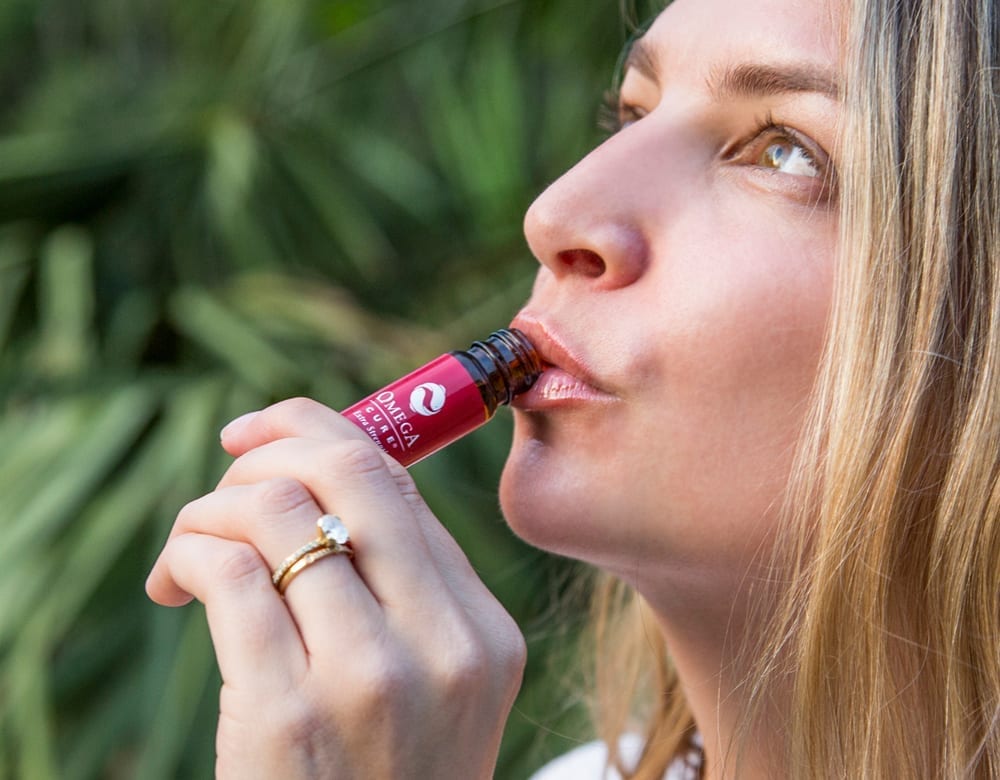
- Halvorsen, Johannessen, Ida and Randi. Vi skal jo selge et produkt’: Oljen er produsert i anlegg som lager dyrefor – i Sør-Amerika.” Aftenposten. May 20, 2008.
- Halvorsen, Johannessen, Ida and Randi. “Nordmenn kjøpte overpriset fiskeolje fra Sør-America for 285 millioner kroner i fjor.” Aftenposten. May 15, 2008.
- Omega-3 Fatty Acid, Fish Oil, DHA (docosahexaenoic acid), EPA (eicosapentaenoic acid). WorldHealth.Net. American Academy of Anti-Aging Medicine. December 30, 2005.
- Hamilton et al. Lipid composition and contaminants in farmed and wild salmon. Environmental Science and Technology. 2005 Nov 15; 39(22):8622-9.
- Kirkpatrick, Kristin. Fish Faceoff: Wild Salmon vs. Farmed Salmon. Health Essentials. Cleveland Clinic. March 3, 2014.
- Guy, Ruth. The History of Cod Liver Oil as a Remedy. The American Journal of Diseases of Children. 1923; 26(2):112-116. doi:10.1001/archpedi.1923.04120140011002.
- Kosthold for gravide. Helsedirektoratet.no. November 1, 2015.
- Neptune at fault in deadly plant explosion, CSST rules. CBC News. May 8, 2014.
- Burri, Lena. Optimizing the Omega-3 Index with Krill Oil. Superba Krill. Aker BioMarine.
- Daniells, Stephen. Krill and fish oil supplements equally effetive at boosting omega-3 levels, says DSM study. NutraIngredients-USA. September 10, 2015.
- Salem, Norman and Kuratko, Connye. A reexamination of krill oil bioavailability studies. Lipids in Health and Disease 2014; 13:137. DOI: 10.1186/1476-511X-13-137.
Popular posts



Related posts
